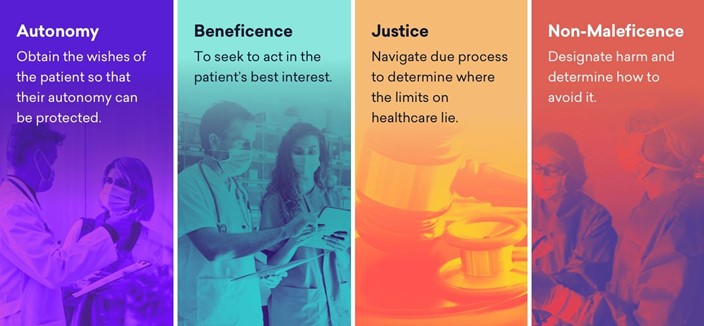A nurse witnesses an adult who is experiencing a cardiac arrest while at the grocery store. The nurse performs CPR. Which of the following criteria is necessary for the Good Samaritan law to provide civil immunity for the nurse?
The nurse has a license to practice nursing in the state where the event occurred.
The nurse has basic life support certification.
The nurse does not cause any harm to the client.
The nurse remains with the client when traveling to the hospital in an ambulance.
The Correct Answer is C
The correct answer is choice C. The nurse does not cause any harm to the client.
Choice A rationale:
While having a license to practice nursing in the state where the event occurred is important for professional practice, it is not a specific requirement for the Good Samaritan law to provide civil immunity. The Good Samaritan law generally protects individuals who provide emergency care in good faith, regardless of their licensure status in that particular state.
Choice B rationale:
Basic life support (BLS) certification is a valuable credential for performing CPR and other emergency procedures. However, the Good Samaritan law does not require the responder to have BLS certification to be protected. The law focuses more on the intent and actions of the responder rather than their specific certifications.
Choice C rationale:
The primary criterion for the Good Samaritan law to provide civil immunity is that the responder does not cause harm to the client. The law is designed to protect those who act in good faith to provide emergency care without gross negligence or willful misconduct. If the nurse’s actions are reasonable and do not result in harm, they are typically protected under the Good Samaritan law.
Choice D rationale:
Remaining with the client when traveling to the hospital in an ambulance is not a requirement for Good Samaritan law protection. The law applies to the immediate emergency care provided at the scene. Once professional medical personnel take over, the Good Samaritan law’s protection generally ends.
Nursing Test Bank
Naxlex Comprehensive Predictor Exams
Related Questions
Correct Answer is B
Explanation
When preparing to administer medications, the nurse carefully confirms the drug order and the patient's identity. This adherence to an essential ethical principle is Non-maleficence. Non-maleficencerefers to the principle of "do no harm" and requires healthcare providers to avoid causing harm to their patients.
Option A refers to wrongdoing or misconduct and is not applicable in this situation.
Option C refers to truthfulness and honesty, but it is not the primary principle being demonstrated in this situation.
Option D refers to fairness and equality, but it is not the primary principle being demonstrated in this situation.
Correct Answer is B
Explanation
When preparing to administer medications, the nurse carefully confirms the drug order and the patient's identity. This is an example of the ethical principle of nonmalfeasance. Nonmalfeasance refers to the principle of "do no harm" and requires healthcare providers to avoid causing harm to their patients.
Option A refers to wrongdoing or misconduct and is not applicable in this situation.
Option C refers to truthfulness and honesty, but it is not the primary principle being demonstrated in this situation.
Option D refers to fairness and equality, but it is not the primary principle being demonstrated in this situation.

Whether you are a student looking to ace your exams or a practicing nurse seeking to enhance your expertise , our nursing education contents will empower you with the confidence and competence to make a difference in the lives of patients and become a respected leader in the healthcare field.
Visit Naxlex, invest in your future and unlock endless possibilities with our unparalleled nursing education contents today
Report Wrong Answer on the Current Question
Do you disagree with the answer? If yes, what is your expected answer? Explain.
Kindly be descriptive with the issue you are facing.
